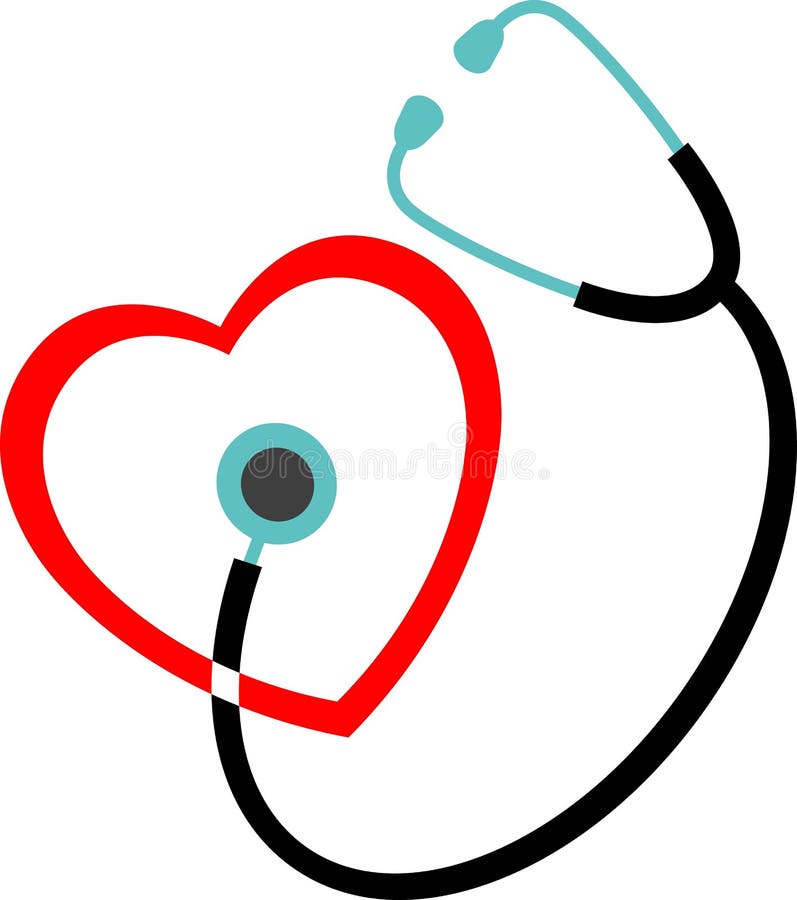The Duty of Cardiology in Preventive Health and Wellness Services
Cardiology is significantly recognized for its pivotal function in preventative health and wellness solutions. By emphasizing positive strategies, cardiologists intend to minimize the occurrence of heart diseases. This method incorporates danger analyses, way of life changes, and normal testings. Through these initiatives, individuals are motivated to take control of their heart health and wellness. Nevertheless, the assimilation of innovation and partnership with other health care carriers increases crucial concerns about the future of preventative care. What might this development entail?

Understanding Preventative Cardiology
Understanding preventative cardiology includes identifying its important function in lowering heart disease threat with proactive measures. This branch of medication emphasizes the importance of way of life adjustments, including exercise, diet, and tension management, to avoid heart-related problems before they emerge. It supports for routine health screenings and education to equip people in making educated wellness choices.Preventative cardiology likewise incorporates the recognition of risk factors such as high blood pressure, diabetic issues, and high cholesterol, prompting individuals to adopt healthier behaviors - Cardiologist near me. By concentrating on avoidance as opposed to response, this approach not just enhances specific wellness end results yet additionally eases the general worry on medical care systems. On top of that, it promotes cooperation amongst healthcare individuals, carriers, and areas, fostering an all natural approach to heart health and wellness. Eventually, understanding preventative cardiology influences a change towards a proactive mindset, focusing on long-lasting health and wellness and well-being
Threat Assessment and Monitoring
Risk analysis is vital in recognizing cardiovascular risks that can cause major wellness concerns. Effective management of these threats frequently involves applying lifestyle alteration approaches, such as boosted diet plan and enhanced exercise. By understanding and resolving these factors, people can substantially reduce their likelihood of creating cardio conditions.
Identifying Cardiovascular Threats
Although numerous elements add to cardiovascular wellness, determining cardiovascular risks is necessary for effective prevention and monitoring. Cardiovascular risk analysis includes evaluating numerous aspects, including household background, way of life, gender, and age habits such as smoking and physical inactivity. In addition, health conditions like hypertension, diabetes mellitus, and high cholesterol considerably influence a person's risk profile. Health care experts make use of tools such as danger calculators and biomarker tests to measure these risks and stratify people accordingly. Early identification enables targeted treatments, assisting individuals towards proper administration strategies. By identifying these threats, cardiologists can collaborate with clients to develop personalized plans that emphasize tracking and positive care, eventually decreasing the chance of damaging cardio events.
Lifestyle Alteration Approaches
Reliable way of life alteration strategies play a necessary duty in taking care of cardio health and reducing affiliated threats. These approaches incorporate dietary adjustments, increased physical activity, and smoking cigarettes cessation. A heart-healthy diet abundant in fruits, vegetables, whole grains, and lean healthy proteins can significantly decrease cholesterol levels and high blood pressure. Normal exercise, such as cardiovascular exercises, strengthens the heart and improves blood circulation. Furthermore, quitting smoking minimizes the threat of heart disease and enhances total wellness. Health care experts usually employ danger assessment tools to customize these modifications to individual requirements effectively. By incorporating way of life become regular treatment, cardiologists can equip people to organize their heart health and wellness, inevitably resulting in enhanced results and decreased medical care prices.
Way Of Living Adjustments for Heart Health And Wellness
To preserve perfect heart health and wellness, people have to embrace a variety of lifestyle adjustments that greatly decrease the likelihood of cardiovascular diseases. A well balanced diet regimen rich in fruits, vegetables, entire grains, and lean healthy proteins is important. Decreasing saturated fats, trans fats, and sodium consumption can significantly decrease cholesterol levels and high blood pressure. Normal exercise, such as brisk strolling or biking for at the very least 150 mins per week, likewise plays a considerable duty in improving and enhancing the heart circulation.Additionally, managing tension with strategies like mindfulness and meditation can have a favorable effect on heart health. Staying clear of tobacco items and limiting alcohol usage additionally add to a much healthier cardiovascular system. Maintaining a healthy and balanced weight is essential, as weight problems is a major threat element for heart problem. By incorporating these lifestyle adjustments, people can cultivate not only their heart wellness yet also their general well-being, resulting in a more dynamic and energetic life.
The Significance of Routine Screenings
Along with way of life adjustments, routine testings play an essential function in preserving heart health and avoiding cardio diseases. These evaluations are significant for recognizing threat elements such as hypertension, high cholesterol, and diabetic issues, which can cause severe difficulties if left untreated. Cardiologists recommend routine evaluations to continue reading this keep track of heart function and identify problems early, allowing for timely intervention.Screenings, which may consist of blood tests, echocardiograms, and electrocardiograms, give essential data for customized therapy plans. This aggressive approach empowers individuals to make enlightened decisions regarding their wellness, improving overall wellness. In addition, normal check-ups cultivate a more powerful doctor-patient partnership, encouraging open discussion concerning heart health problems.
Integrating Technology in Precautionary Care
Accepting technology has reinvented preventative treatment in cardiology, using cutting-edge devices that boost person surveillance and interaction. Wearable gadgets, such as smartwatches and health and fitness trackers, allow people to monitor their heart rate, task levels, and general health metrics in real-time. These gadgets not only give immediate comments yet additionally help with information showing to doctor, enabling for prompt interventions when necessary.Additionally, telemedicine has actually become a famous feature in cardiology, making it possible for remote examinations and follow-ups. This access guarantees that people can get treatment without the barriers of traveling and time restrictions. Mobile health applications additional assistance preventative procedures by supplying customized understandings and pointers for medication adherence, lifestyle adjustments, and scheduled screenings.
Individual Education and Empowerment
Empowerment via education is necessary in the domain of preventative cardiology, as notified people are more likely to take part in proactive health behaviors. By recognizing their cardio health, people can make informed choices regarding way of living alterations and adherence to therapy plans. Educational efforts, including workshops, informative pamphlets, and on-line resources, serve to boost individual understanding regarding danger factors such as high blood pressure, cholesterol levels, and the value of routine exercise.Moreover, equipping patients cultivates a collective strategy to health administration. When patients are conscious of their conditions and the implications of their selections, they are most likely to join discussions with healthcare suppliers, causing tailored care strategies. This partnership not only promotes responsibility yet likewise boosts motivation for maintaining a heart-healthy lifestyle (Cardiology Jupiter). Inevitably, patient education and learning is a keystone of preventative cardiology, gearing up people with the devices needed to take charge of their cardio wellness and health
Working together With Various Other Medical Care Professionals
Reliable client education and learning prepares for collaborative initiatives amongst medical care specialists in the area of preventative cardiology. Cardiologists, health care physicians, nutritionists, and psychological health professionals should work in harmony to maximize patient results. By sharing insights and strategies, these experts can develop detailed treatment strategies that resolve both psychological and physical elements of heart health.Regular interdisciplinary conferences foster communication, guaranteeing that all employee are educated about patient development and obstacles. This collaboration helps with prompt interventions internet and adjustments to treatment strategies, improving the effectiveness of preventative measures.Furthermore, incorporating technology, such as shared digital health documents, enhances information access and enhances sychronisation initiatives. This holistic strategy not just improves client adherence to way of living changes however likewise equips individuals to take charge of their cardio health. Inevitably, partnership among medical care specialists is vital in promoting an aggressive strategy to heart condition avoidance.
Frequently Asked Concerns
What Is the Difference Between Cardiology and General Health And Wellness Treatment?
Cardiology focuses on identifying and treating heart-related conditions, while basic healthcare incorporates a wider series of clinical solutions resolving numerous health problems - Cardiologist near me. Each plays an essential function in keeping general health and wellness and well-being
How Frequently Should I See a Cardiologist for Precautionary Care?
The regularity of cardiologist brows through for preventative treatment varies based on individual threat elements. Generally, annual consultations are suggested for those with status quo, while others may need less regular exams based upon total heart health.
Can Stress Influence My Heart Health Considerably?
Anxiety can significantly affect heart wellness by adding to hypertension, swelling, and unhealthy way of living options. People experiencing chronic stress and anxiety may go to raised risk for cardiovascular problems, necessitating reliable tension management Check Out Your URL methods for much better heart health.
Exist Specific Heart Disease I Should Be Aware Of?
People should be conscious of conditions like high blood pressure, coronary artery disease, heart failure, arrhythmias, and valvular heart illness. Acknowledging these conditions early can result in much better monitoring and improved overall heart health and wellness end results.

What Are the Prices Connected With Preventative Cardiology Solutions?
The prices linked with preventative cardiology services can differ considerably. Factors such as area, type of service, and insurance protection influence overall expenditures, making it crucial for individuals to look for detailed details certain to their conditions. With these initiatives, patients are motivated to take control of their heart health and wellness. It promotes for routine wellness testings and education and learning to encourage people in making informed health and wellness choices.Preventative cardiology likewise includes the recognition of threat aspects such as high blood pressure, diabetes mellitus, and high cholesterol, prompting individuals to take on healthier practices. In enhancement, it advertises cooperation among medical care patients, areas, and companies, promoting a holistic approach to heart health. Regular physical activity, such as quick walking or biking for at the very least 150 mins per week, additionally plays a substantial duty in improving and strengthening the heart circulation.Additionally, handling anxiety with methods like mindfulness and meditation can have a favorable effect on heart health and wellness. Cardiology specializes in detecting and dealing with heart-related conditions, while general health care includes a broader range of clinical services addressing different wellness concerns.